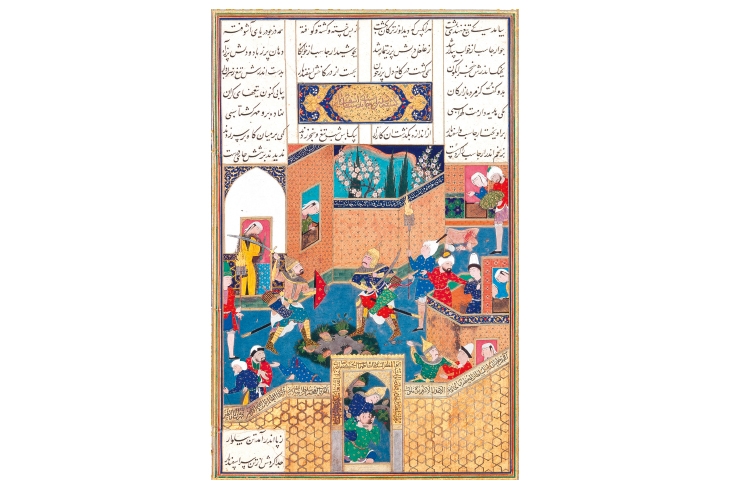The title of this book, By the Pen and What They Write, is a quotation from the Qur’an and comes from the opening of the ‘Surah al-Qalam’ (Chapter of the Pen), in which the authority of the cosmic scribes in heaven, whose writing determines the fate of humanity, is invoked in order to authenticate the revelation that follows. According to Islamic tradition, the Prophet Muhammad was illiterate (and so presumably were most of his audience).
So it is odd to find writing featuring so prominently in this surah and throughout the Qur’an. Prior to the revelation of the Qur’an in the seventh century, the only texts that have survived in the Arabian Peninsula are brief, unargumentative rock inscriptions and many of these are in languages or scripts other than Arabic. So, as Angelika Neuwirth, one of the distinguished scholars to contribute to this volume, observes:
It is a striking fact then, that the Qur’an appears — seemingly — out of the void, as a fully fledged discursive text, extensive in range and replete with philosophical and theological queries.
The Bible consists of many diverse texts by diverse hands that have been assembled over the centuries.

Get Britain's best politics newsletters
Register to get The Spectator's insight and opinion straight to your inbox. You can then read two free articles each week.
Already a subscriber? Log in







Comments
Join the debate for just $5 for 3 months
Be part of the conversation with other Spectator readers by getting your first three months for $5.
UNLOCK ACCESS Just $5 for 3 monthsAlready a subscriber? Log in